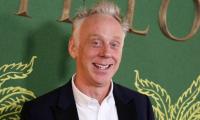The lure of linguicism
The term ‘linguicism’ was coined in the 1980s by Finnish linguist and educator Tove Skutnabb-Kangas. She defined linguicism as the “ideologies and structures that are used to legitimate, effectuate and reproduce an unequal division of power and resources between groups, which are defined on the basis of language”.
Paivi Gynther, another educationist, has also defined the term in her book ‘Beyond Systematic Discrimination’. According to Gynther, “…linguicism is a matter of depriving people of power and influence due to their language”.
Linguicism can be covert and overt. The former is exemplified by the non-use of particular languages as languages of instruction whereas the latter can be illustrated through the prohibition of certain languages as languages of instruction. According to Kangas, “linguicism can be open, conscious, visible, and actively action-oriented as opposed to ‘merely’ attitudinal. Or, it can be hidden, unconscious, invisible, and passive, typical of later phases in the development of minority education”.
Linguicism operates by stigmatising languages or dialects. It is discrimination created by the hegemony of certain social groups over others. Hegemony denotes the ability of a group of people to control all social institutions and, consequently, influence the norms, values, ideas, expectations and behaviour of the dominated group. Hegemony doesn’t involve force alone. In fact, it goes beyond that and incorporates ideologies and influences perceptions. In order to influence others and generate consent, the dominated people must be made to believe that their own values, norms, language, and culture are subordinate to those that are dominant.
People are often judged based on their social status, regional background, ethnicity and a range of personal and social characteristics that are simply reflected in the form of language they use. In the Pakistani context, we can see linguicism operating in all its form. Whether covert, overt or systematic, linguicism is a product of the dynamics of the distribution of power within our political milieu, which is a product of the colonial era.
The use of the rather colonial term ‘vernacular literature’ to denote the literature produced in Indian languages during the British rule in the Subcontinent also suggests a form of covert linguicism. Our political rhetoric and social discourse quite often abhors colonialism. But we forget that its legacy is still quite prevalent in our attitude and policy in the form of “ideologies and structures”.
A form of linguicism that is accompanied by racism has been very overt on the state level since the inception of Pakistan. One language was granted prestige over all others as there was an obsession to build a homogeneous nation at the expense of diversity. The official policy did not allow any other language to be recognised by the state. All other Pakistani languages were stigmatised as ‘provincial’ and ‘regional’ or were accorded labels like ‘Hinduised’ or ‘profane’. The language of a majority of Pakistanis before 1970 was labelled ‘profane’ merely because of its script and folklore, even though a script is just a physical representation of the sounds and structures of a language.
The struggle for a separate homeland for Muslims in United India could not diminish the ethnic diversity within Muslim society. Resentment towards one language as the single marker of Muslim identity across India began as early as the 1930s. However, these hostilities were not as overt then as they became after the creation of Pakistan and India.
In Pakistan, the prejudice against all other languages other than Urdu and English exists even today. Almost all the major educational reforms and policies between 1947 and 2017 have maintained linguistic discrimination and imposed a form of linguistic imperialism by denying a majority of children the right to education in their own language. Another example of linguicism in Pakistan is the box that is marked as ‘other’ or contains the ‘zero digit’ in the census data form in our national census database. The overt linguicism by the state has given origin to a mass of negative attitudes or covert linguicism in our society, which is so starkly diverse on ethnic and religious lines.
The speakers of non-dominant languages – languages that are either not institutionalised or known to many people – often complain about being mocked by speakers of dominant languages.
Privileged social groups have always been stigmatising the less advantaged and marginalised groups. Pakhtuns are mocked for their seemingly peculiar way of speaking Urdu. This is so common that even our electronic media doesn’t think twice before ridiculing them for the way they speak the national language.
The narrative that pushes for ‘one nation with one ideology and identity’ has overwhelmingly labelled any movement for the revival of language and identity as ‘anti-state’ or ‘treacherous’. Movements in NWFP (today’s Khyber Pakhtunkhwa) and Sindh were dubbed as ‘separatist’, ‘anti-Pakistan’ and ‘anti-Islam’. Pashto was maliciously dubbed as the ‘language of hell’. This has been so beautifully rebuffed by Amir Hamza Baba, a famous Pashto poet, in the following verse: Wai Aghyaar Chi Da Dawzakh Jaba Da/ Za Ba Jannat Ta Da Pakhto Sara Zam (The opponents say that it is the language of hell/ I will go to heaven with Pashto).
Pashto and the other majority languages aren’t the only ones to be frequently stigmatised by these language groups. Minority languages and practice are also relegated to the lowest strata of our social landscape. A renowned Pashto poet and researcher (now deceased) once made disparaging remarks against my mother language, saying that no books had been written in it.
Another example of the prevailing linguicism among our academia and intelligentsia is the practice of declaring all languages – except the five major ones – as ‘dialects’.
How do we deal with linguicism? This is a question that we need to repeatedly ask ourselves as it is not only a question of politics but of human rights as well. Linguicism is as much a violation of human dignity as racism and sexism are.
Every year, we observe International Mother Language Day on February 21 to remind people about the value of cultural and linguistic diversity and the need to not only preserve it but to celebrate it in the interest of creating a pluralistic and plurilingual society.
Questions surrounding language are equally relevant in philosophy, politics, ethnography and anthropology as well as in linguistic and communication studies. Since it is the “sum total of all that humans experience as species”, as explained by Walt Whitman, “language is not an abstract construction of the learned, or of dictionary makers, but is something arising out of the work, needs, ties, joys, affections, tastes, of long generations of humanity, and has its bases broad and low, close to the ground”.
The writer heads an independent
organisation dealing with education and development in Swat.
Email: ztorwali@gmail.com
-
 Cardi B Finally Responds To Accusations About Destroying 'SNL' Set After Nicki Minaj Joke
Cardi B Finally Responds To Accusations About Destroying 'SNL' Set After Nicki Minaj Joke -
 Gorton And Denton By-election Result: Green Party Defeats Labour In Blow To Keir Starmer
Gorton And Denton By-election Result: Green Party Defeats Labour In Blow To Keir Starmer -
 Jack Dorsey Cuts 4,000 Roles, Says AI Requires Smaller Teams
Jack Dorsey Cuts 4,000 Roles, Says AI Requires Smaller Teams -
 Reggie Bannister Health Takes ‘difficult Turn’ Amid Dementia, Parkinson’s Battle
Reggie Bannister Health Takes ‘difficult Turn’ Amid Dementia, Parkinson’s Battle -
 'Humble Traitor' Rob Rausch Makes Unexpected Move After Betraying Maura Higgins In Season 4
'Humble Traitor' Rob Rausch Makes Unexpected Move After Betraying Maura Higgins In Season 4 -
 Sarah Ferguson Drops An Accusation Against Andrew? ‘He Just Wants Leverage’
Sarah Ferguson Drops An Accusation Against Andrew? ‘He Just Wants Leverage’ -
 Anthropic Rejects Pentagon Military AI Proposal, Holds Firm On Safety Guardrails —What’s Next?
Anthropic Rejects Pentagon Military AI Proposal, Holds Firm On Safety Guardrails —What’s Next? -
 'Traitors' Reunion Drama: Rob Rausch Defends Strategy, Makes Shocking Revelation After Victory
'Traitors' Reunion Drama: Rob Rausch Defends Strategy, Makes Shocking Revelation After Victory -
 Inside Hillary Clinton’s Epstein Testimony: Key Takeaways And Highlights Explained
Inside Hillary Clinton’s Epstein Testimony: Key Takeaways And Highlights Explained -
 'Too Hard To Be Without’: Woman Testifies Against Instagram And YouTube
'Too Hard To Be Without’: Woman Testifies Against Instagram And YouTube -
 Kendall Jenner Recalls Being ‘too Stressed’: 'I Want To Focus On Myself'
Kendall Jenner Recalls Being ‘too Stressed’: 'I Want To Focus On Myself' -
 Ethel Kennedy’s 34 Grandchildren And The Expanding Kennedy Family Legacy
Ethel Kennedy’s 34 Grandchildren And The Expanding Kennedy Family Legacy -
 Dolly Parton Achieves Major Milestone For Children's Health Advocacy
Dolly Parton Achieves Major Milestone For Children's Health Advocacy -
 'The White Lotus' Creator Mike White Calls 'Survivor' Fans 'sadistic'
'The White Lotus' Creator Mike White Calls 'Survivor' Fans 'sadistic' -
 Oilers Vs Kings: Darcy Kuemper Pulled After Allowing Four Goals In Second Period
Oilers Vs Kings: Darcy Kuemper Pulled After Allowing Four Goals In Second Period -
 Calgary Weather Warning As 30cm Snow And 130 Km/h Winds Expected
Calgary Weather Warning As 30cm Snow And 130 Km/h Winds Expected



